Idea by
Salvador Lindquist and John Vieweg
Context Collaborative
https://context-collaborative.com/
Call for ideas 2021
PROTO
PROTO
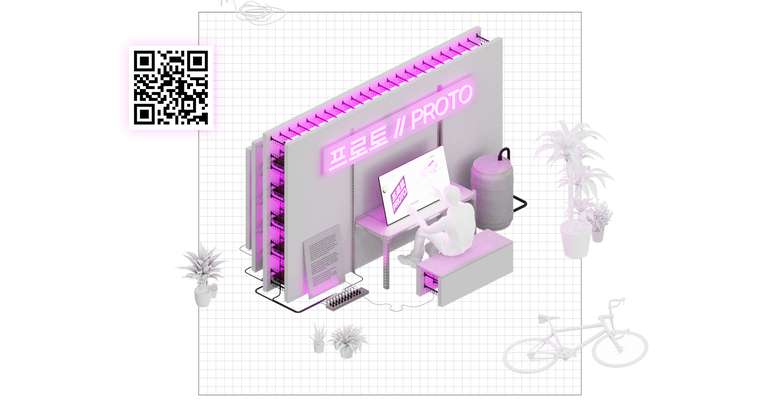
- Systemic changes
PROTO is not only an adaptive kit of parts, it is also the design of a platform that facilitates the interface between consumer and product. Topography is defined as the arrangement of the natural and artificial physical features of an area — if a garden is the interpretation of its context, then how can the garden reflect increasingly urban topographies? As an object and logistical entity, PROTO proposes a prototype for the proliferation of user-generated vertical gardens in Seoul. Within logistical systems, there is the potential to consider the matrix by which architecture and urbanism is suspended through the interface between front- and back-ends of architecture. The garden, reflective of its urban topographies and indeterminate spatial conditions, has the potential to proliferate throughout the city by way of understanding the immaterial systems behind architectural production.
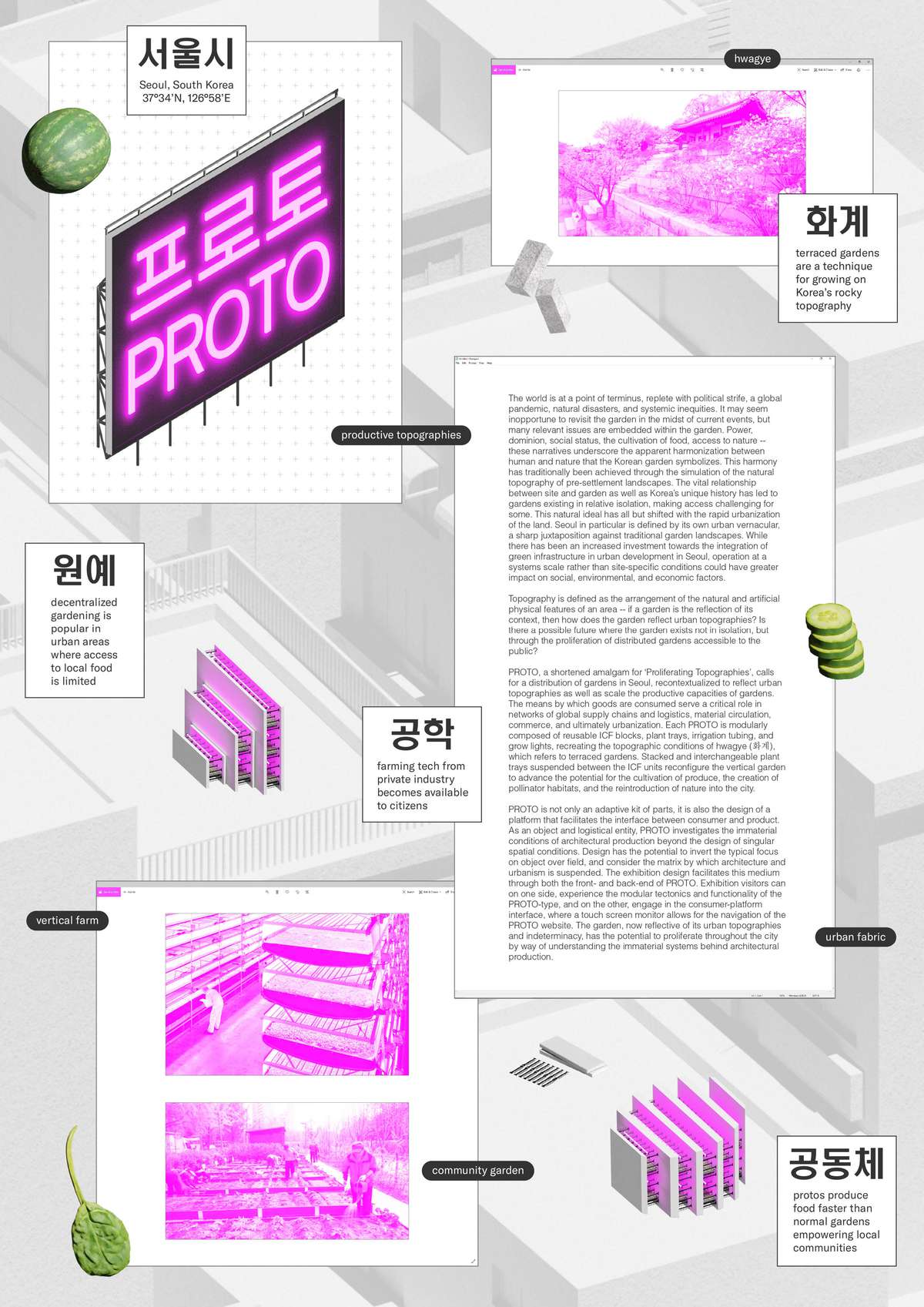
PROTO exhibition design features a prototype of a modular vertical garden comprised of reusable ICF blocks, plant trays, irrigation tubing, and grow lights, recreating the topographic conditions of hwagye (화계), which refers to terraced gardens. This style of garden was popularized during the Goryeo Dynasty in the 10th century AD and can still be found in the gardens of the Gyeongbokgung, Changdeokgung, and Changgyeonggung palaces.
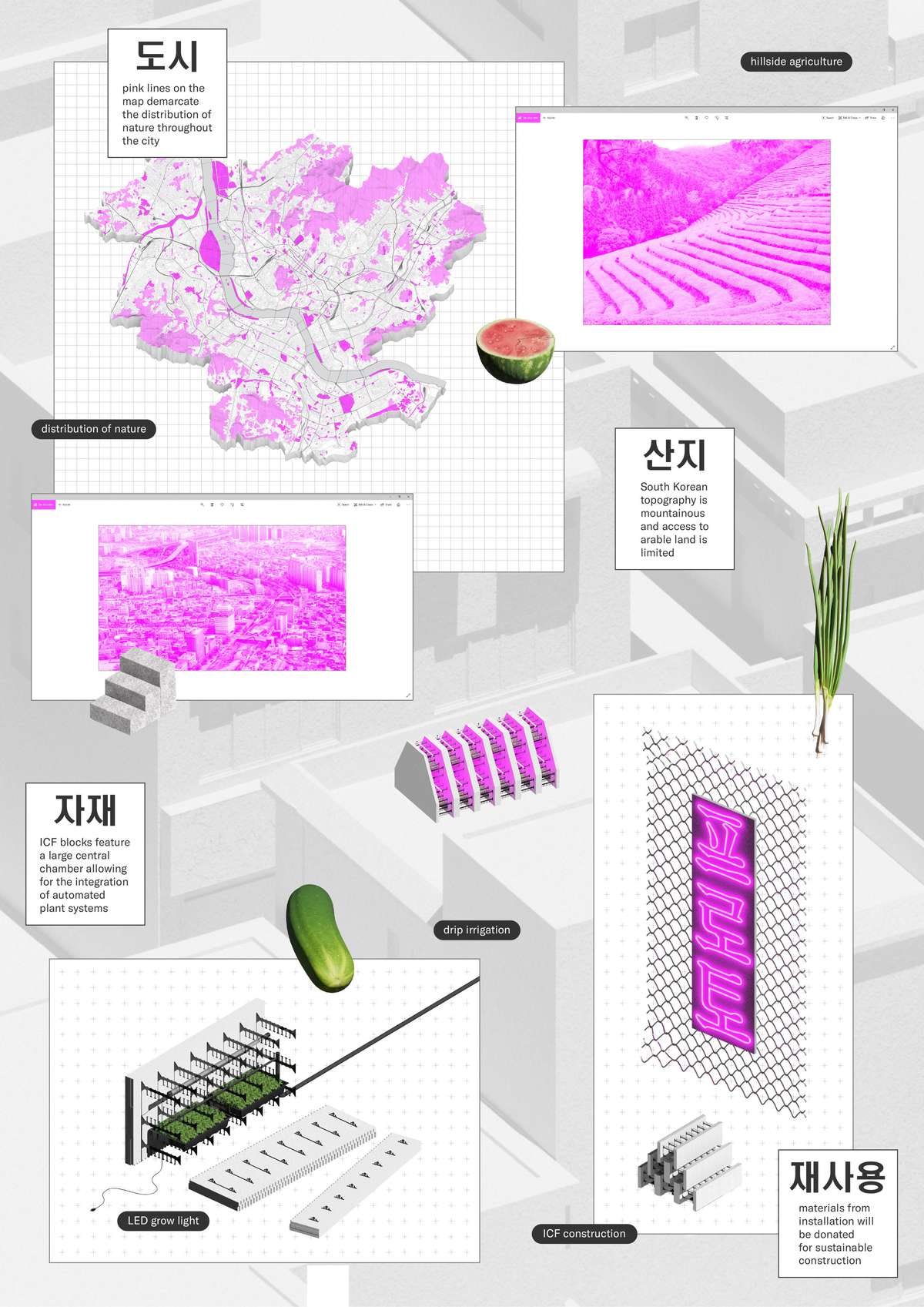
Power, dominion, social status, the cultivation of food, access to nature — these narratives underscore the apparent harmonization between human and nature that the Korean garden symbolizes. This harmony has traditionally been achieved through the simulation of the natural topography of pre-settlement landscapes. This natural ideal has shifted with the rapid urbanization of the land.
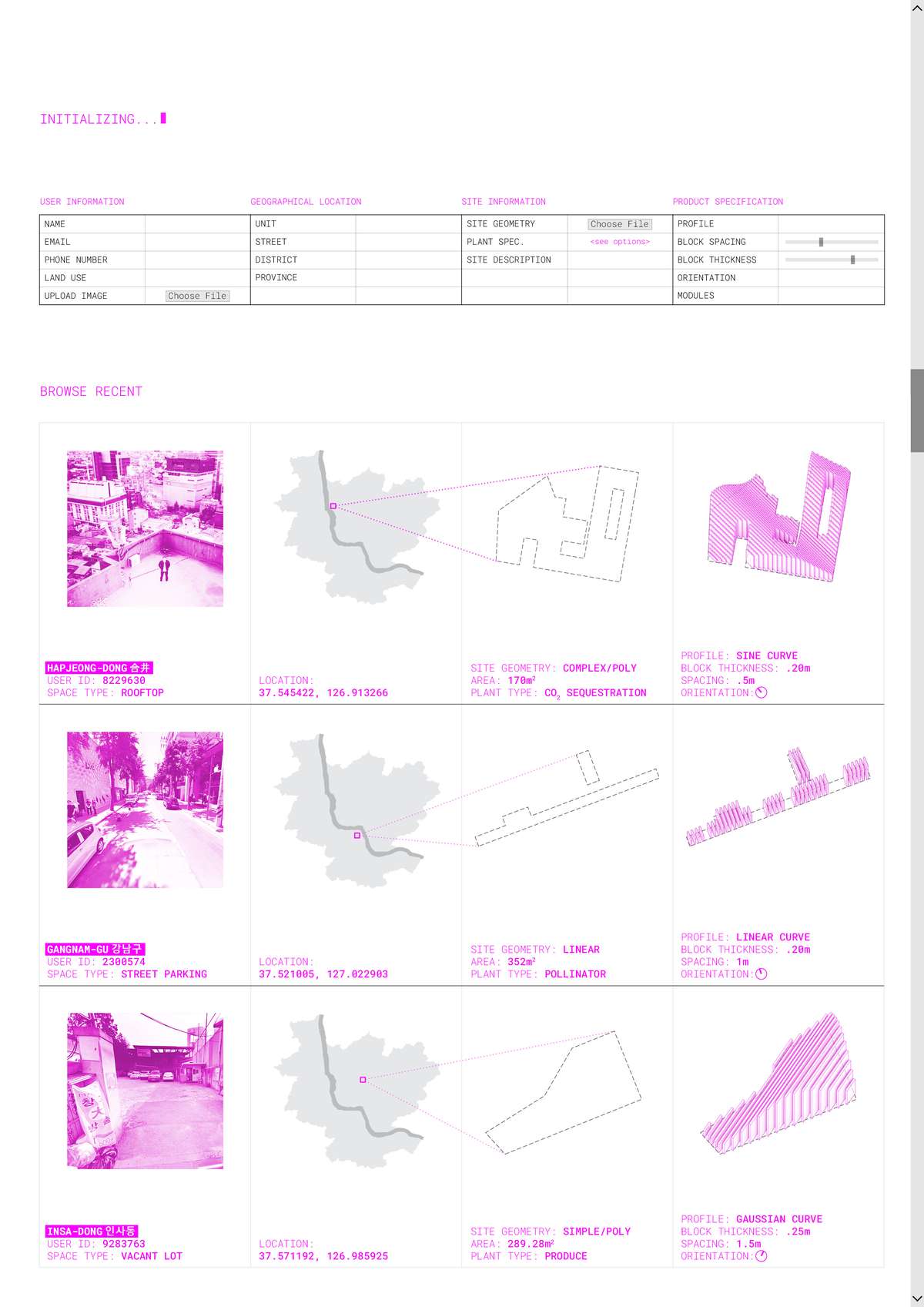
The means by which goods are distributed and consumed serve a critical role in networks of global supply chains and logistics, material circulation, commerce, and ultimately urbanization. The PROTO platform provides the interface for the user to specify inputs in order to generate a suitable product for their particular context. This is made possible through a modular kit of parts.
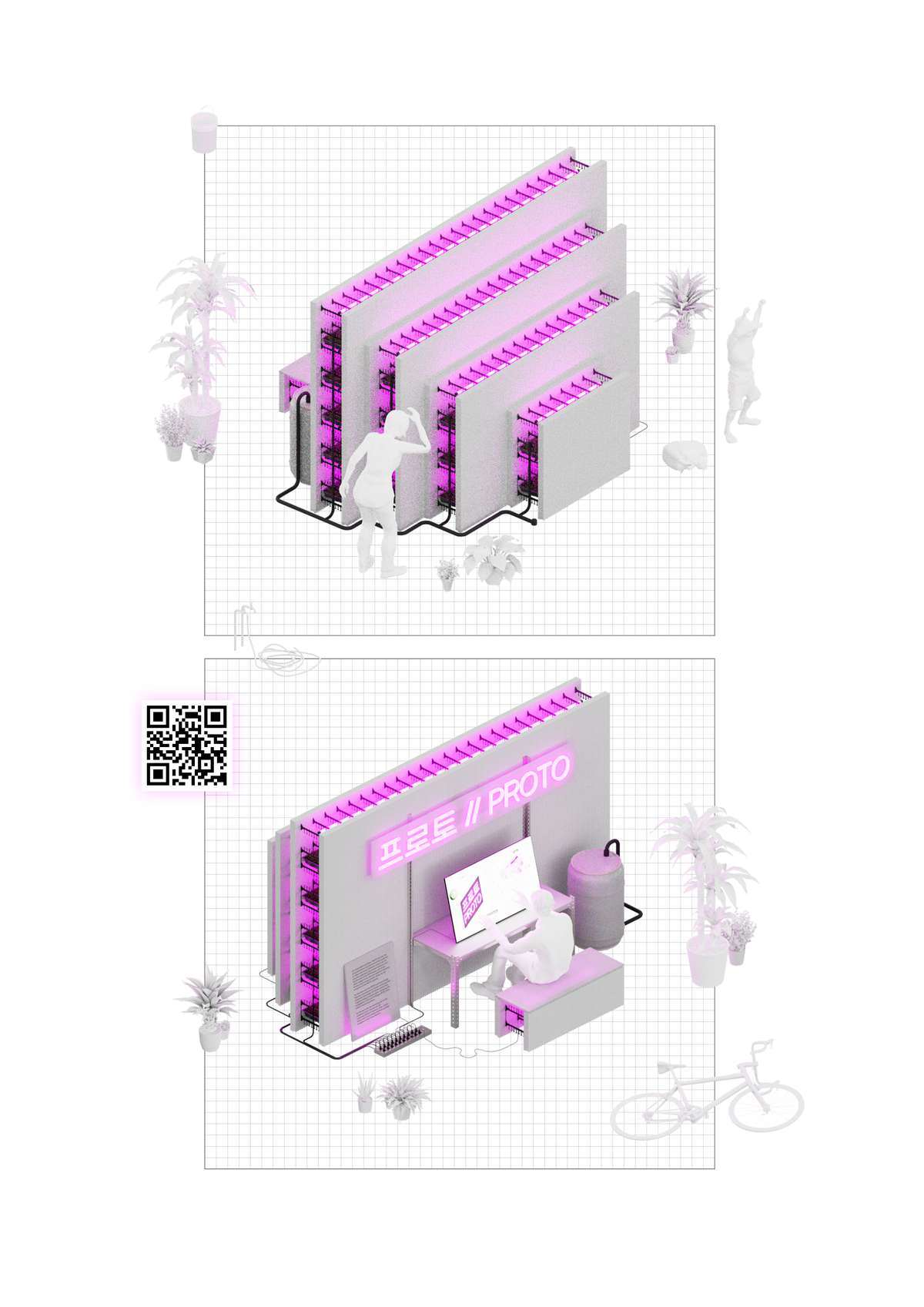
As a dual-sided exhibition, PROTO features the conceptual front- and back-end of the project as an object and entity. Exhibition visitors can on one side, experience the modular tectonics and functionality of the PROTO-type, and on the other, engage in the consumer-platform interface, where a monitor allows for the navigation of the PROTO website.
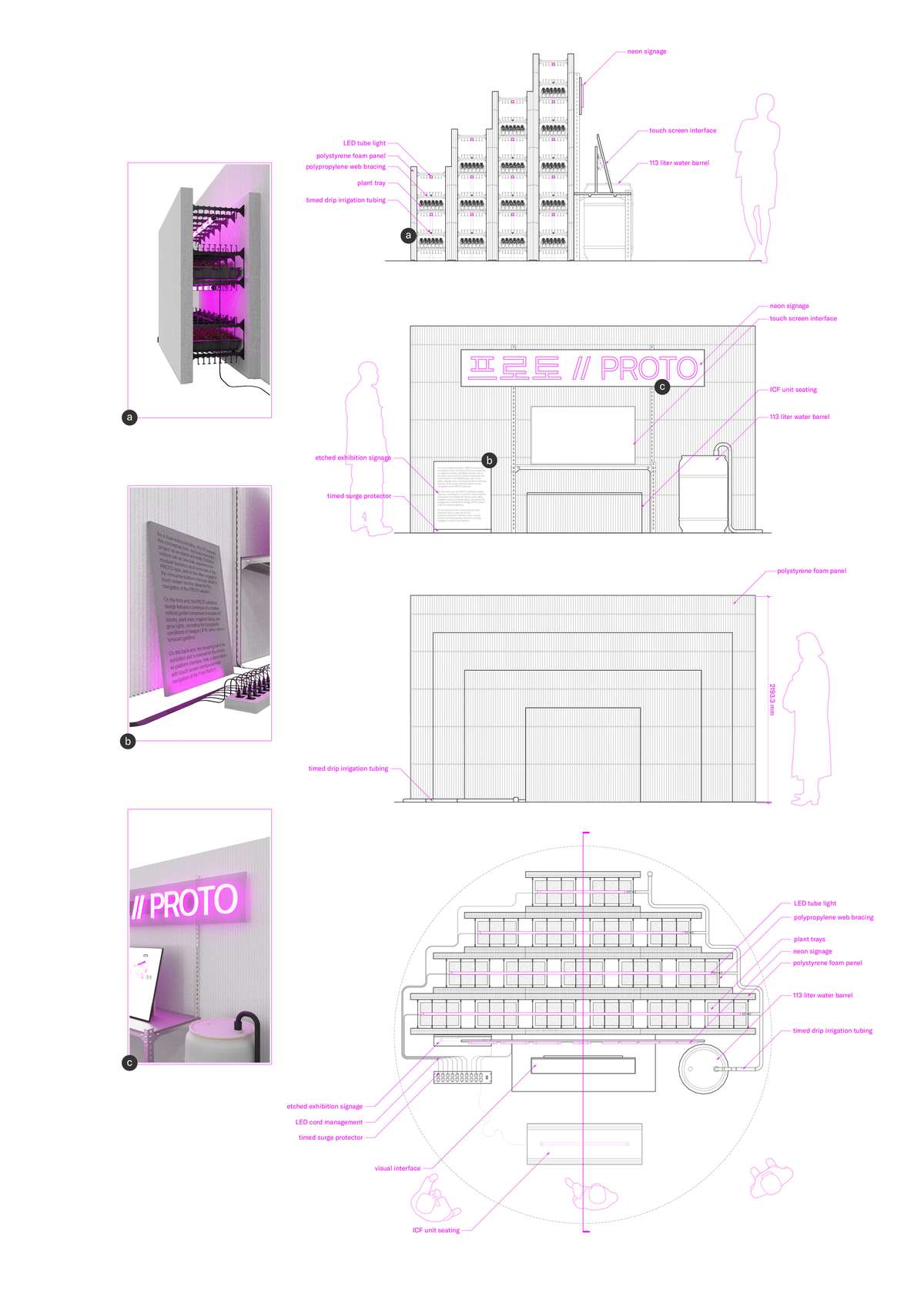
A demo station with video interface provides an audiovisual navigation of the Proto Platform. Information about the concept, potential uses, order management, and logistical systems of the product are communicated via this terminal.
PROTO
PROTO

- Systemic changes
PROTO is not only an adaptive kit of parts, it is also the design of a platform that facilitates the interface between consumer and product. Topography is defined as the arrangement of the natural and artificial physical features of an area — if a garden is the interpretation of its context, then how can the garden reflect increasingly urban topographies? As an object and logistical entity, PROTO proposes a prototype for the proliferation of user-generated vertical gardens in Seoul. Within logistical systems, there is the potential to consider the matrix by which architecture and urbanism is suspended through the interface between front- and back-ends of architecture. The garden, reflective of its urban topographies and indeterminate spatial conditions, has the potential to proliferate throughout the city by way of understanding the immaterial systems behind architectural production.
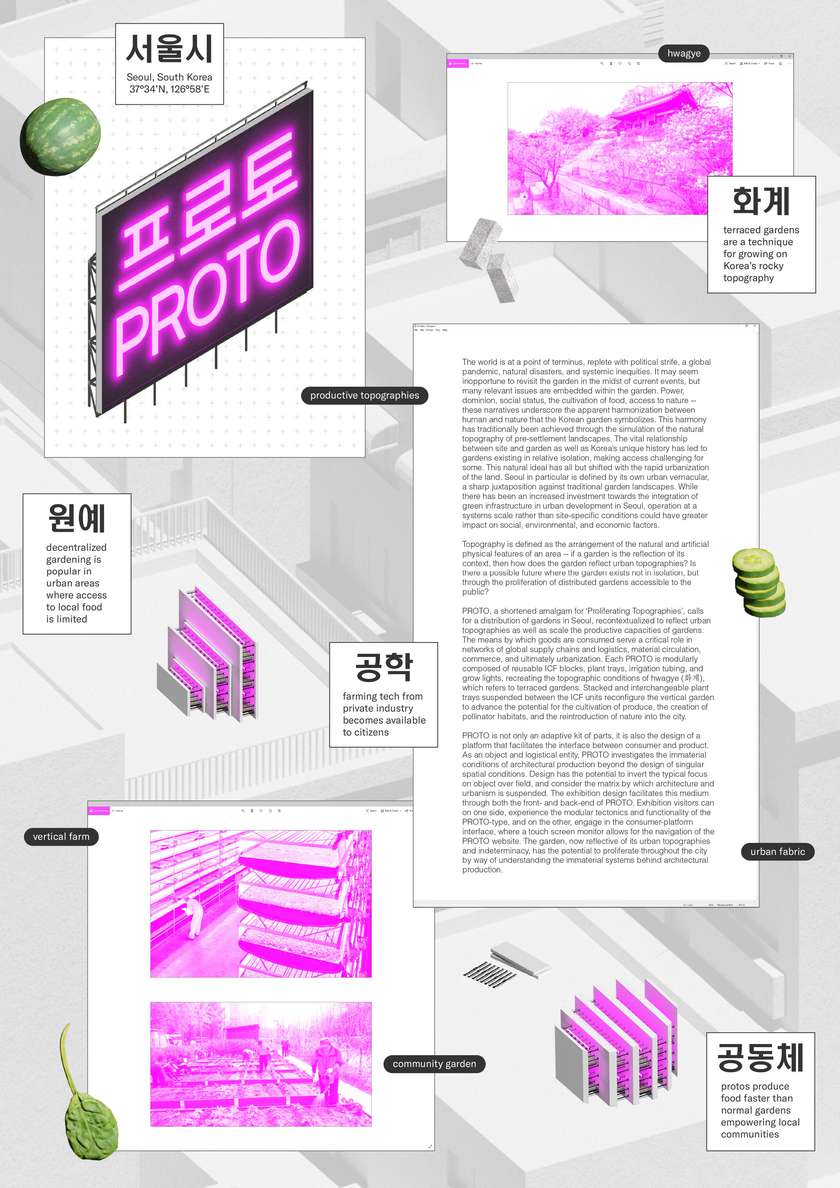
PROTO exhibition design features a prototype of a modular vertical garden comprised of reusable ICF blocks, plant trays, irrigation tubing, and grow lights, recreating the topographic conditions of hwagye (화계), which refers to terraced gardens. This style of garden was popularized during the Goryeo Dynasty in the 10th century AD and can still be found in the gardens of the Gyeongbokgung, Changdeokgung, and Changgyeonggung palaces.
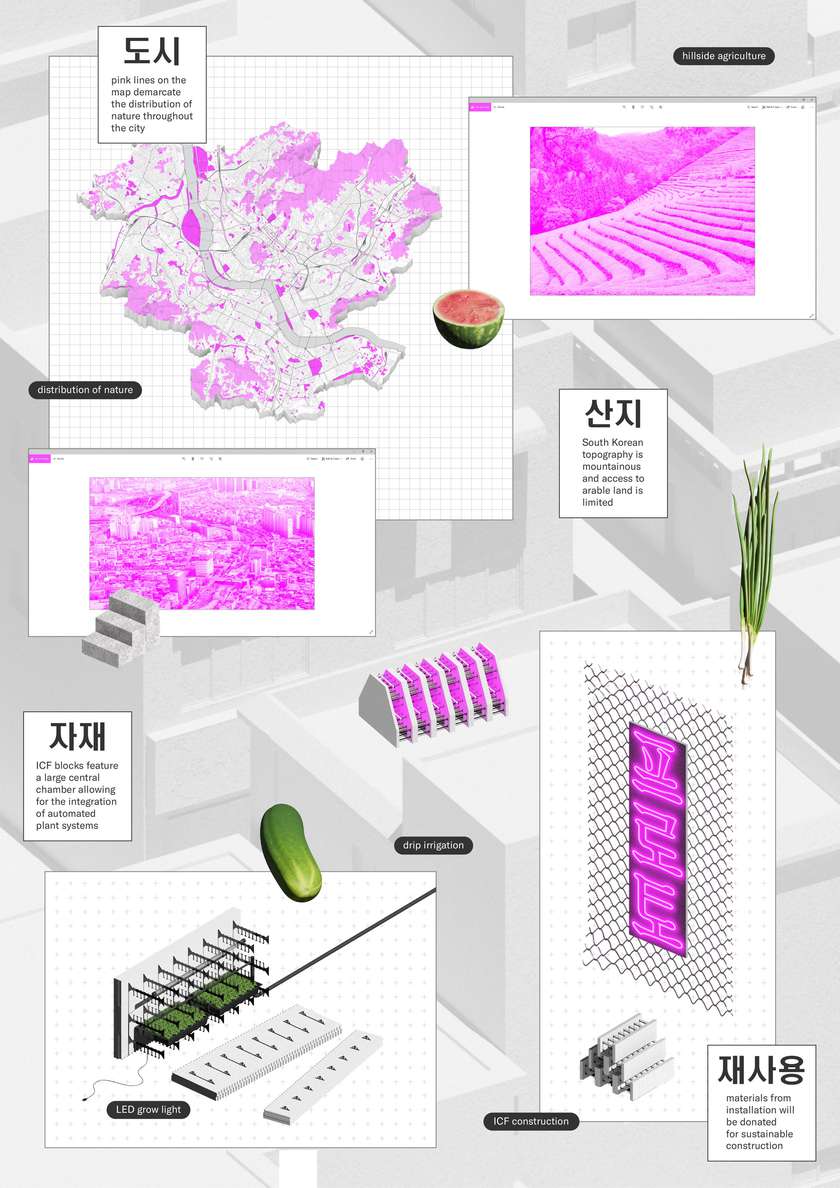
Power, dominion, social status, the cultivation of food, access to nature — these narratives underscore the apparent harmonization between human and nature that the Korean garden symbolizes. This harmony has traditionally been achieved through the simulation of the natural topography of pre-settlement landscapes. This natural ideal has shifted with the rapid urbanization of the land.
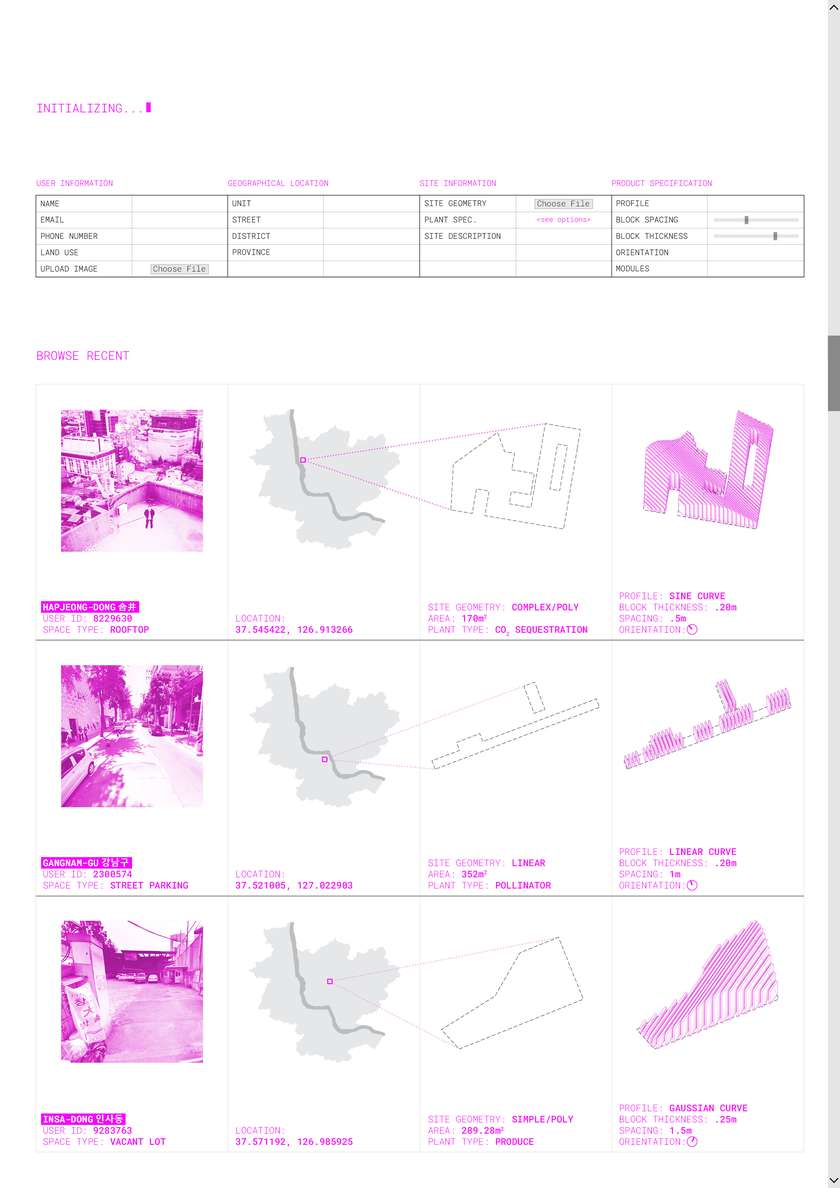
The means by which goods are distributed and consumed serve a critical role in networks of global supply chains and logistics, material circulation, commerce, and ultimately urbanization. The PROTO platform provides the interface for the user to specify inputs in order to generate a suitable product for their particular context. This is made possible through a modular kit of parts.
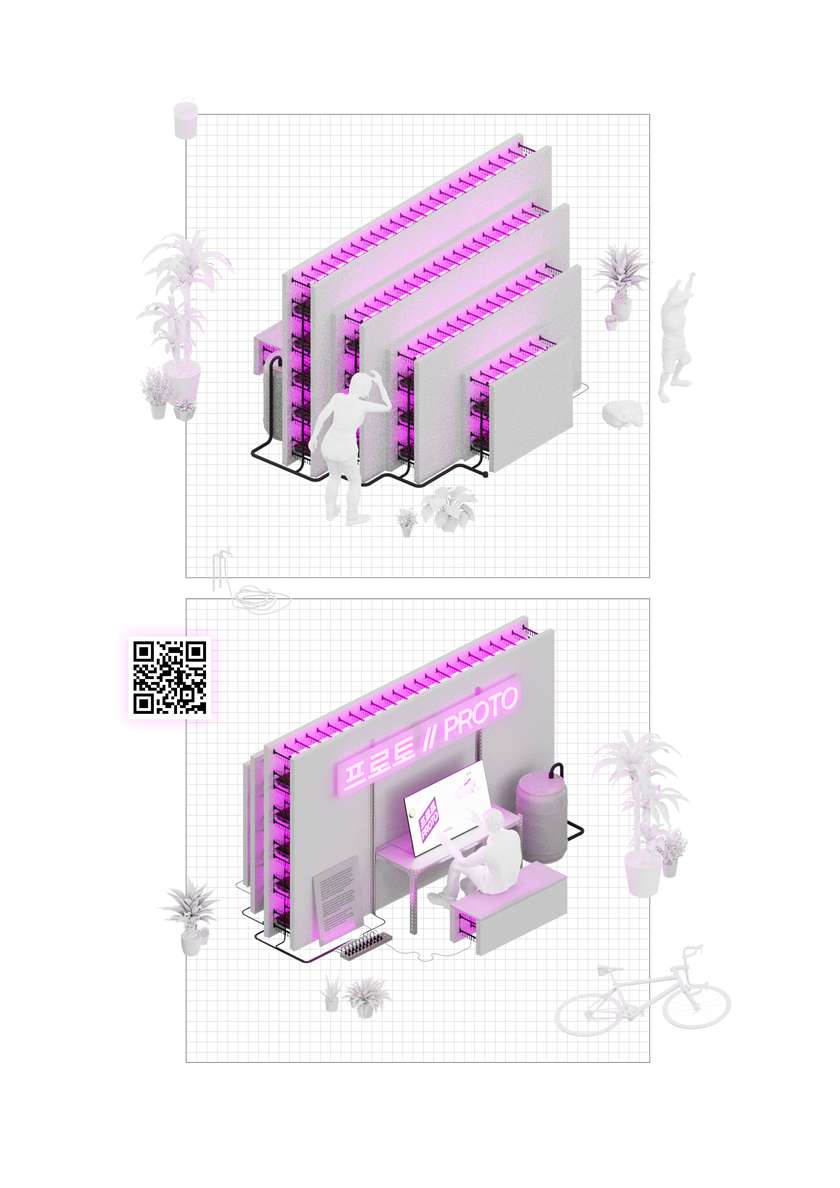
As a dual-sided exhibition, PROTO features the conceptual front- and back-end of the project as an object and entity. Exhibition visitors can on one side, experience the modular tectonics and functionality of the PROTO-type, and on the other, engage in the consumer-platform interface, where a monitor allows for the navigation of the PROTO website.
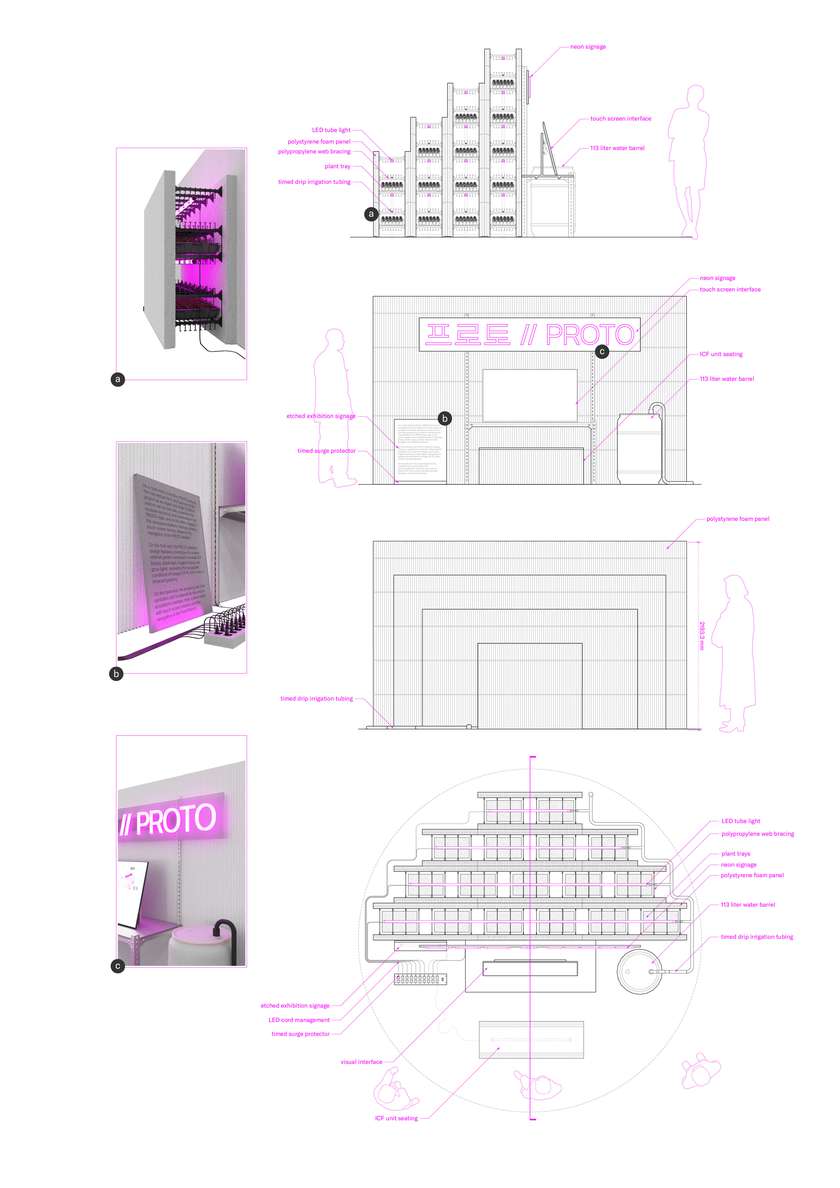
A demo station with video interface provides an audiovisual navigation of the Proto Platform. Information about the concept, potential uses, order management, and logistical systems of the product are communicated via this terminal.